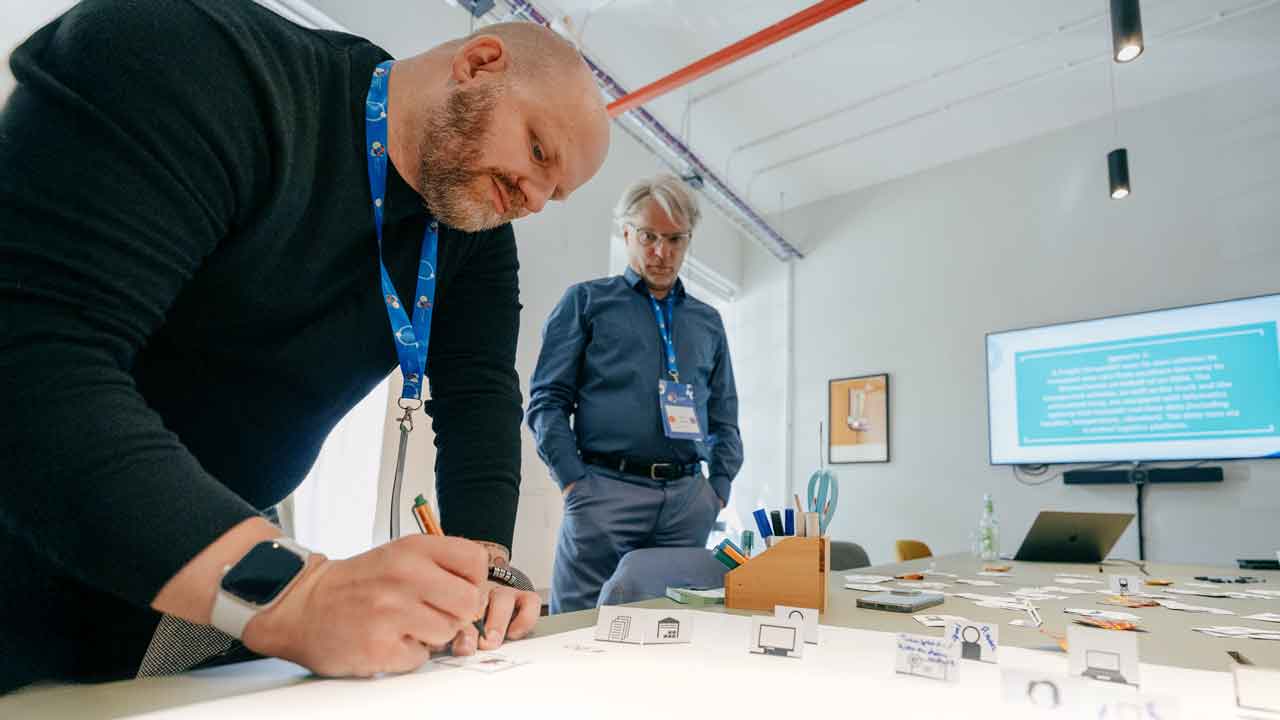Cost savings, expanded innovation potential, and increased flexibility: worldwide, more and more companies are recognising and making use of the benefits of open source software. Because: open, standardised, and source-accessible software helps to avoid expensive in-house developments and proprietary solutions, reduce IT costs, and give digitalisation the often decisive push. Perceptions of open source have also changed in the SME sector in recent years: “Open source software is no longer seen as a stopgap for tight budgets, but increasingly understood as a strategic option with real added value,” observes Prof. Dr. Dirk Riehle, Professor of Open Source Software at the Friedrich-Alexander University Erlangen-Nürnberg. Especially in logistics – an industry driven by highly standardised, interconnected processes – open source offers more than just a cost advantage: it is a catalyst for interoperability, innovation, and resilience. Yet, in many places, siloed solutions, outdated IT systems, and a lack of interface standards continue to hinder efficiency – including in logistics.
Community as a success factor
While large corporations have been strategically investing in software infrastructures and both using and developing open source software for many years, small and medium-sized enterprises often still struggle with the latter: resources are limited, external dependencies are high, and internal IT capacity is rarely scalable. Yet SMEs benefit from contributing to open source projects in a very particular way, because their investments have greater impact. Even small contributions can have a major effect – helping to differentiate their own products or services and strengthening independence, innovative capacity, and visibility. “The Open Logistics Foundation has recognised these leverage effects and offers SMEs exactly what has often been lacking until now: a community that invites companies not only to use software, but to help shape it,” says open source professor Dirk Riehle. The principle is: those who contribute, help build – for themselves and for others. This is how a digital ecosystem emerges in which everyone grows, not just the few.
Close to the processes
SMEs are a key factor in this success. Because SMEs operate close to the processes – and know exactly where digitalisation efforts fall short. This applies not only to logistics companies but also to IT firms working in logistics. In the projects of the Open Logistics Foundation, they benefit from sitting at the forefront of development and being able to provide their customers with targeted support in the implementation of new open source solutions. And it is precisely SMEs that can bring their specific requirements directly into the projects through active contributions – instead of having to adapt to solutions primarily made for large companies. This results in software that truly meets their needs. “Being part of an open source project community does not give a company an advantage over competitors who are also active in the community. However, it does give them a competitive advantage over everyone who is not part of that community,” says Prof. Dr. Dirk Riehle. “I call this the country or cluster-level competitive advantage that foundations like the Open Logistics Foundation offer their members.”
Sustainable change
Whether it’s data models, interfaces, or the digital mapping of logistics processes: the challenges currently facing small and medium-sized enterprises are similar. Martin Schulze, CEO of IT consultancy BusinessCode, a member of the Open Logistics Foundation, consistently observes: “As a solution provider specialising in unlocking the value of data in the logistics industry, we have observed that many logistics service providers operate on proprietary data models, creating extra effort for both providers and their customers.”
SMEs, in particular, often don’t have the same opportunities to work on innovations as larger companies. This could ultimately limit, or even threaten, their competitiveness, says logistics technology strategist André Kaeber, who advises SMEs on digitalisation projects through his company, also OLF member ANDKAEBER: “That’s why I especially recommend cooperative approaches for SMEs, like those offered by the Open Logistics Foundation, to work on innovations together with a network of experts.”
Ulrich Buhrmann, Director Market Transport & Logistics at IT company iteratec, with 500 employees across seven locations, also sees a major opportunity for SMEs in collaboration within a network: “Everyone who wants to elevate industry standards is invited to join – to bring in real challenges and co-create practical, scalable solutions. We all face similar hurdles. Together, we can create a lasting impact that benefits the entire industry.”
Collaboration works
Within the Open Logistics Foundation, SMEs also have the opportunity to engage with young, innovative companies. Especially when it comes to knowledge transfer, promoting innovation, and forming strategic partnerships, the exchange with start-ups offers great added value for SMEs. And the reverse is also true. As Gabriel Beslic, Chief Product Officer at start-up Gryn – one of the newest members of the OLF – emphasises: “The Open Logistics Foundation is a rare space where collaboration really works. What’s especially valuable is being able to work directly with much larger companies. That kind of exchange makes a real difference.” Gryn is a SaaS platform that helps companies to capture, report, and reduce transport-related carbon emissions. Its customers include leading global companies that are supported by Gryn in complying with sustainability standards.
Against this backdrop, Gryn is involved in the “Emissions Data Exchange” project of the Open Logistics Foundation, which is working on the implementation and adoption of the iLEAP standard for logistics emissions. “In projects like this, we get to bring in our hands-on perspective and help shape solutions that actually fit the industry’s needs,” says Beslic. Martin Schulze from BusinessCode also appreciates the cooperative collaboration in the network: “As an active member of the Open Logistics Foundation, I see firsthand how the collaborative work within the Foundation ensures SME’s voices are truly heard and valued.”




